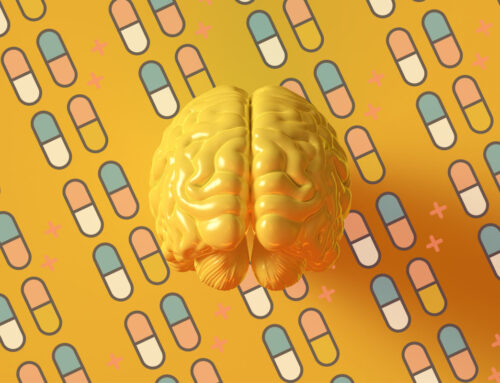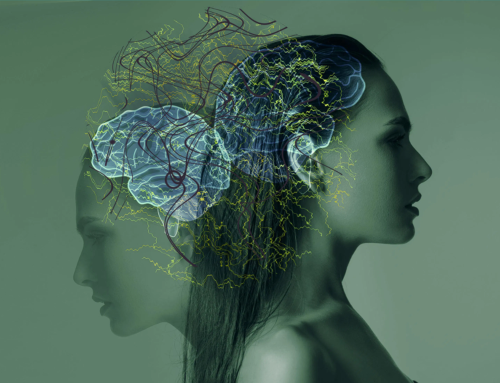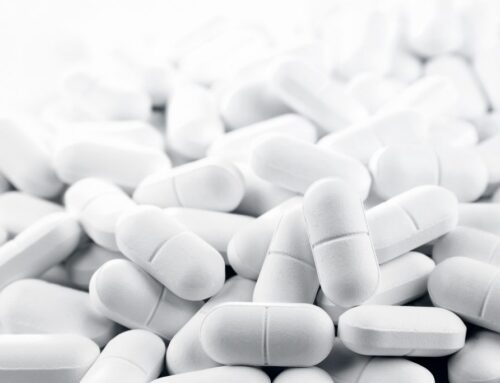Top basic nootropics its about the top nootropics in their original form, not stacked like you find in Mind Lab Pro
Nootropics are a special class of nutrients, supplements, smart drugs, and nutraceuticals that have been observed to improve brain performance and health. They may improve memory, learning, reasoning, intelligence, cognitive processing speed, verbal fluidity, attention, focus, motivation, mood and energy.
They work in a variety of ways: some help to increase the supply of neurotransmitters and other neurochemicals involved in communication between brain cells; some help to increase the uptake of oxygen and glucose into brain cells; others promote the overall health of brain systems. Still others have been shown to stimulate the growth of new neurons and synapses (connections between nerve cells), or to increases the overall plasticity of the brain – its ability to change in response to new experiences.
What are the basic nootropics ?
The word “nootropic” comes from the Greek word “noos,” which means mind. Dr. Corneliu E. Giurgea first coined the term following his discovery of a remarkable substance called Piracetam in 1964. His team at UCB first synthesized this compound when they were working to create a treatment for motion sickness.
The early trials with Piracetam found that it can improve memory, mental processing, focus and performance across a battery of cognitive tests. Not only this, it has no significant side effects and does not share the pharmacology of typical psychotropic drugs such as nervous system stimulation or depression.
This was an unprecedented discovery and it opened the door to the development of other cognitive enhancement drugs that could improve mental functioning in healthy adults. In 1972, Giurgea coined the term “nootropic” to describe Piracetam and the class of drugs yet-to-be discovered.
Nootropics are substances that can change the way the brain functions. They boost your learning and memory, have neuroprotective effects, and exhibit very low toxicity. Giurgea laid out a set of strict definitions for the class, requiring that they also have almost no side effects.
You can use nootropics to do a number of things like boosting your academic performance or productivity, increasing neuroprotection against diseases like Alzheimer’s and Parkinson’s, and even preventing seizures. They’re incredibly versatile and have an expanding range of applications.
Top basic nootropics:
5 HTP
Assuming you are referring to 5-hydroxytryptophan, it is a naturally occurring amino acid nootropic and precursor to the neurotransmitter serotonin. Serotonin is involved in the regulation of mood, appetite, and sleep. 5-HTP supplements are used to boost serotonin levels in order to treat conditions like anxiety, depression, insomnia, and weight loss.
While 5-HTP is generally safe, there are some potential side effects including nausea, vomiting, diarrhea, drowsiness, and headaches. It is also important to note that 5-HTP should not be taken with antidepressants or other medications that affect serotonin levels. If you are considering taking a 5-HTP supplement, be sure to speak with your healthcare provider first.
Adrafinil
Adrafinil is a powerful nootropic that can improve cognitive function and help you to feel more alert. It is most commonly used to treat narcolepsy, but it can also be used to increase productivity and vigilance. Adrafinil is a wakefulness-promoting agent that acts on the central nervous system. It is structurally similar to modafinil and has similar effects. Adrafinil is not as well-known as modafinil, but it is just as effective.
ALCAR
Ii is a powerful nootropic that has shown to be effective in improving memory and cognitive performance. ALCAR is also known for its ability to protect the brain from damage and improve brain health.
Alpha GPC
There are a number of different nootropics on the market today, and each one has its own unique set of benefits. Alpha GPC is one of the more popular nootropics, and for good reason. Here are just a few of the benefits that you can expect from taking Alpha GPC:
- Enhanced cognitive function – One of the biggest benefits of Alpha GPC is that it can help to enhance your cognitive function. If you’re looking for a way to improve your memory, focus, and concentration, then this nootropic is definitely worth considering.
- Boosted brain power – In addition to enhancing your cognitive function, Alpha GPC has also been shown to boost your brain power. Studies have shown that it can help increase blood flow to the brain, which in turn can lead to increased mental energy and improved brain function.
- Increased growth hormone production – Another benefit of Alpha GPC is that it can help increase growth hormone production. This is great news for those who are looking to build muscle or improve their athletic performance, as increased growth hormone levels can lead to greater gains.
If you’re looking for a powerful nootropic that can offer a host of benefits, thenAlpha GPC is definitely worth considering.
Aniracetam
Aniracetam is a powerful nootropic that can enhance cognitive function, memory, and creativity. It is also known for its ability to improve communication and social skills.
9-ME-BC
9-ME-BC is a nootropic supplement that has been shown to improve memory and cognitive function. It is also known to increase focus and concentration. 9-ME-BC is a safe and effective way to improve your mental performance.
7,8-DHF
7,8-Dihydroflavonol (7,8-DHF) is a nootropic compound that is structurally similar to the well-known nootropic compound, Piracetam. 7,8-DHF has been shown to improve memory and cognitive function in animal studies, and preliminary human research suggests it may enhance blood flow to the brain and protect neurons from damage. 7,8-DHF is not yet available as a dietary supplement or medication, but it shows promise as a future treatment for cognitive decline and age-related memory loss.
Astragaloside IV
Astragaloside IV is a saponin compound derived from the Chinese herbal medicine Astragalus membranaceus. It is one of the most abundant active ingredients in the plant, comprising 1-2% of the dry weight. Astragaloside IV has been shown to have a wide range of potential health benefits, including neuroprotection, anti-inflammatory effects, and immune system regulation.
Astragaloside IV is thought to exert its beneficial effects via a number of mechanisms. For example, it has been shown to increase levels of nerve growth factor (NGF) and brain-derived neurotrophic factor (BDNF), which are important for neuronal survival and regeneration. Additionally, astragaloside IV inhibits microglial activation, thus reducing inflammation in the central nervous system. Finally, astragaloside IV has also been shown to modulate the activity of natural killer cells and dendritic cells, indicating an ability to regulate immune system function.
Given its wide range of potential benefits, astragaloside IV is an exciting compound with great therapeutic potential. Further research is needed to elucidate its exact mechanisms of action and to determine whether it can be used effectively to treat human diseases.
Bacopa Monnieri
Its a nootropic supplement that has been used for centuries in traditional Ayurvedic medicine. Bacopa is an adaptogen, meaning it helps the body adapt to stressors. It is also a neroprotective, meaning it helps to protect the brain from damage. Bacopa has been shown to improve memory, attention, and cognitive function. It is also thought to help with anxiety and depression.
Baicalin
Baicalin is a nootropic compound that can be found in the roots of the Chinese plant Scutellaria baicalensis. This traditional medicinal herb has been used in China for centuries to treat a variety of ailments, including anxiety, insomnia, and headaches.
Baicalin’s nootropic effects are thought to be derived from its ability to promote GABAergic activity in the brain. GABA is a neurotransmitter that plays an important role in regulating anxiety and sleep. By increasing GABA activity, baicalin can help to reduce anxiety and improve sleep quality.
In addition to its anxiolytic effects, baicalin has also been shown to improve cognitive performance in animal studies. One study found that baicalin improved memory and learning performance in rats by modulating acetylcholine levels in the brain.
While baicalin appears to be safe and well-tolerated at low doses, more research is needed to confirm its efficacy as a nootropic compound.
Berberine
Berberine is an alkaloid that is found in a variety of plants, including Coptis chinensis, Hydrastis canadensis, and Berberis aquifolium. It has a long history of use in traditional Chinese medicine and Ayurveda for the treatment of digestive disorders, diabetes, and bacterial infections.
Berberine has shown promise as a nootropic supplement for its ability to improve cognitive function and memory. In one study, berberine was found to improve memory and learning performance in rats. It also increases cerebral blood flow, which may contribute to its cognitive-enhancing effects.
Berberine is thought to work by modulating neurotransmitter systems in the brain. It increases levels of acetylcholine and dopamine, two important neurotransmitters for learning and memory. Additionally, it inhibits the activity of an enzyme called cholinesterase that breaks down acetylcholine. By increasing levels of acetylcholine and inhibiting cholinesterase, berberine may help to enhance memory and cognitive function.
BETA-NMN
B-NMN is a powerful nootropic that has been shown to improve cognitive function and memory in studies. It is also neuroprotective, meaning it can help protect the brain from damage. B-NMN is found naturally in the body, but levels decline with age. Supplementing with B-NMN can help to restore cognitive function and protect the brain from age-related damage.
Centrophenoxine
Centrophenoxine is a nootropic drug that is often used to treat cognitive decline and age-related memory problems. It is thought to work by increasing levels of the neurotransmitter acetylcholine in the brain, which is involved in memory and learning. Centrophenoxine has been shown to improve memory and cognitive function in aged rats and humans with Alzheimer’s disease. It may also help to protect the brain from damage caused by toxins and inflammation.
Choline Bitartrate
Choline Bitartrate is a nootropic supplement that has cognitive-enhancing effects. It increases levels of the neurotransmitter acetylcholine, which improves memory and learning. Choline Bitartrate also reduces inflammation and oxidative stress, and has neuroprotective effects.
Citicoline
Its a nootropic supplement that has been shown to improve cognitive function and memory. Citicoline is a naturally-occurring compound found in the body, and its supplementation has been shown to increase levels of dopamine and acetylcholine in the brain. Citicoline has also been shown to improve blood flow to the brain and protect neurons from damage.
Coluracetam
Coluracetam (brand name: IntelliNootropics) is a nootropic supplement that has been shown to improve memory and cognitive function. It is also known to increase levels of BDNF (brain-derived neurotrophic factor) and NGF (nerve growth factor), which are important for brain health and plasticity. Coluracetam has a low toxicity profile and is well-tolerated by most people, making it a safe and effective option for those looking to improve their cognitive performance.
DHEA
DHEA (dehydroepiandrosterone) is a hormone produced by the adrenal glands. It is a precursor to testosterone and other sex hormones. DHEA levels decline with age, which may contribute to age-related health problems.
DHEA supplements have been claimed to improve mood, build muscle, increase strength, boost energy, fight depression, and aid in weight loss. However, there is little scientific evidence to support these claims. In fact, most research shows that DHEA supplements have no effect on healthy people.
DHM
Its a nootropic supplement that has been shown to improve cognitive function and memory. DHM is thought to work by increasing levels of the neurotransmitter acetylcholine in the brain. Acetylcholine is involved in learning and memory, and levels of this neurotransmitter have been shown to decline with age. DHM has been shown to improve memory and cognitive function in both animal and human studies, and it is considered to be a safe and effective nootropic supplement.
Dihexa
Dihexa is a nootropic drug that has shown promise in improving cognitive function and memory. It is thought to work by increasing levels of acetylcholine, a neurotransmitter involved in learning and memory. Dihexa has been shown to improve memory in animal studies, and preliminary research suggests it may help people with Alzheimer’s disease or other forms of dementia.
DMAE
DMAE is a powerful nootropic that has been shown to improve cognitive function and memory. It works by increasing levels of the neurotransmitter acetylcholine in the brain. This neurotransmitter is responsible for learning and memory. DMAE has also been shown to increase levels of dopamine and serotonin, which are other important neurotransmitters for mood and cognition.
Emoxypine
Its a nootropic that has shown promise in improving cognitive function and reducing stress levels. Emoxypine has been shown to increase blood flow to the brain, which may improve cognitive function. Emoxypine may also help to reduce stress by reducing the levels of the stress hormone cortisol.
Fasoracetam
“Fasoracetam is a nootropic drug that has been shown to improve memory and cognitive function. It is also known to increase levels of the neurotransmitter acetylcholine. Acetylcholine is involved in learning and memory, so this effect may contribute to fasoracetam’s benefits on cognition. Additionally, fasoracetam has antidepressant and anxiolytic effects, which may help to improve mood and reduce stress.”
Fladrafinil
Fladrafinil (CRL-40,940) is a nootropic and cognitive enhancer with a long half-life. It was originally developed by the French pharmaceutical company Lafon Laboratories in the 1980s as an analogue of the then-newly discovered modafinil.
Has been used to treat fatigue and narcolepsy, although it is not currently approved for any medical use in most countries. However, its effects on cognition and wakefulness have made it popular among students, entrepreneurs, and other professionals who need to stay alert and focused for long periods of time.
Fladrafinil works by modulating the neurotransmitter dopamine in the brain. It increases dopamine levels by inhibiting its reuptake, which leads to improved focus, concentration, and motivation. Additionally, fladrafinil inhibits the breakdown of dopamine, which further enhances its effects.
At lower doses, fladrafinil has been shown to improve task flexibility and working memory. At higher doses, it can increase reaction time and vigilance. In general, fladrafinil is well-tolerated with few side effects reported at therapeutic doses. The most common side effect is mild gastrointestinal upset.
Fladrafinil is a powerful nootropic that can be used to improve cognitive function in a variety of ways. Its long half-life means that its effects can last for several hours, making it a good choice for those who need to
Flmodafinil
Flmodafinil is a nootropic drug that has been shown to improve cognitive function in a variety of studies. It is structurally similar to modafinil and has similar effects on the brain, but it is more potent and has a longer duration of action.
Flmodafinil is typically used to treat sleep disorders such as narcolepsy, but it can also be used off-label to improve cognition in healthy individuals. In one study, flmodafinil improved planning and problem-solving abilities in healthy young adults (1).
Other studies have shown that flmodafinil can help improve working memory, reaction time, and verbal fluency (2, 3). It has also been shown to enhance learning and memory in rats (4).
Overall, flmodafinil is an effective nootropic drug that can improve cognitive function in healthy individuals and those with sleep disorders.
GABA
GABA is a neurotransmitter that plays a role in relaxation and stress relief. It is also known for its calming effects on the nervous system.
Galantamine
Galantamine is a nootropic that increases levels of the neurotransmitter acetylcholine. It is used to treat Alzheimer’s disease and dementia. Galantamine also improves memory and cognitive function in healthy adults.
Gastrodin
Gastrodin is a compound found in the root of the Chinese herb Gastrodia elata. It has been used in traditional Chinese medicine for centuries for its purported brain-protecting effects.
Recent studies have shown that gastrodin has neuroprotective and cognition-enhancing properties in animal models of Alzheimer’s disease and other forms of dementia. Gastrodin also appears to improve cerebral blood flow and protect the brain from ischemic injury.
While more research is needed to confirm these effects in humans, gastrodin shows promise as a potential therapy for cognitive decline and dementia.
Gotu Kola
Gotu kola is a small, herbaceous perennial plant in the flowering family Apiaceae. It is native to India, Sri Lanka, and South Africa, and has been introduced to many other tropical and subtropical regions.
The leaves are borne on long petioles and are variable in shape, usually with 3-7 lobes. The flowers are small and white, borne in umbels. The fruit is a schizocarp consisting of two mericarps ( halves) each containing a single seed.
Gotu kola grows in damp habitats, such as swamps, marshy areas, and near streams and ponds. It prefers full sun to partial shade and thrives in moist soils with good drainage. It can be propagated by seed or division.
In traditional medicine, gotu kola is considered a “brain tonic” that promotes memory and cognitive function. It is also used for its anti-inflammatory, anti-viral, and wound-healing properties. Today, gotu kola extract is commonly used as an ingredient in dietary supplements and beauty products.
Guarana Extract
Its a popular nootropic ingredient that is derived from the South American guarana plant. Guarana has been used for centuries by the indigenous people of the Amazonian rainforest for its stimulant properties. The guarana plant contains high levels of caffeine, which is why it is often used as an energy booster or weight loss aid. Guarana extract is also known to improve mental focus and cognitive performance.
Huperzine A
Huperzine A is a cognitive enhancer that has been shown to improve memory and cognitive performance in clinical studies. It is thought to work by increasing levels of acetylcholine, a neurotransmitter involved in learning and memory. Huperzine A is available as a dietary supplement and is often used as a nootropic stack with other cognitive enhancers such as piracetam or choline.
Hydrafinil
Hydrafinil is a nootropic compound that has been shown to improve cognitive function and vigilance. It is structurally similar to modafinil and shares many of its beneficial effects. Hydrafinil is less potent than modafinil, but has a longer duration of action.
Its a wakefulness-promoting agent belonging to the class of eugeroics. It was first synthesized in the 1970s by a team of German scientists[1] and is structurally related to the more well-known compound modafinil. Both hydrafinil and modafinil increase wakefulness and vigilance, but hydrafinil is less potent than modafinil.[2]
Hydrafinil acts on the dopaminergic, noradrenergic, and serotonergic systems.[3] Its exact mechanism of action is unknown, but it is thought to work by inhibiting the reuptake of dopamine and norepinephrine.[4] This results in increased levels of these neurotransmitters in the brain, which leads to improved alertness and wakefulness. In addition, hydrafinil also increases histamine levels in the brain,[5] which further contributes to its wakefulness-promoting effects.
Hydrafinil has been shown to improve cognitive function in rats.[6] It also improves vigilance in healthy human volunteers,[7] making it a potential treatment for
Inositol
Inositol is a nutrient that is found in many foods, including fruits, grains, and nuts. It is also available as a supplement. Inositol has been shown to have a variety of benefits, including improving mental health and reducing anxiety.
L-DOPA
L-DOPA is a natural amino acid that is produced in the body and is a precursor to the neurotransmitter dopamine. Dopamine is involved in many important functions in the brain, including motivation, attention, and movement.
Has been shown to be effective in treating Parkinson’s disease, as it can increase dopamine levels in the brain. It has also been studied as a treatment for other conditions such as depression and ADHD.
L-DOPA can be taken orally or injected, and it is typically well-tolerated with few side effects. The most common side effect is nausea, which can be alleviated by taking the supplement with food.
If you are considering taking L-DOPA for any reason, it is important to speak with your doctor first to ensure it is safe for you.
L-Theanine
L-Theanine is an amino acid commonly found in green tea. It is known to promote relaxation without drowsiness and can improve cognitive function and memory. Additionally, L-Theanine has shown to increase levels of the neurotransmitter GABA, which helps to reduce anxiety and improve sleep quality.
L-Tryptophan
L-Tryptophan is an essential amino acid that plays a role in the production of serotonin. Serotonin is a neurotransmitter that helps regulate mood, sleep, and appetite. L-Tryptophan supplements have been shown to improve mood and reduce anxiety.
L-Tyrosine
L-Tyrosine is one of the most popular nootropics on the market. It’s a naturally occurring amino acid that’s been shown to improve cognitive performance, reduce stress, and promote healthy brain function.
L-Tyrosine supplementation has been shown to improve cognitive performance in stressful situations, like exams or public speaking. It works by reducing the levels of stress hormones in the brain, which can lead to improved focus and concentration.
The amino acid is also known for its ability to promote healthy brain function. It supports the production of dopamine and norepinephrine, two important neurotransmitters that play a role in memory, learning, and mood.
L-Tyrosine is safe for most people when taken at recommended doses. However, it can cause some side effects like headache, nausea, and anxiety. If you experience any adverse effects, stop taking the supplement and speak with your doctor.
L-Phenylalanine
L-phenylalanine is an essential amino acid that is a precursor to the neurotransmitters dopamine, norepinephrine, and epinephrine. It is found naturally in foods such as meat, eggs, and dairy products. Supplementation with L-phenylalanine has been shown to boost mood, cognitive function, and memory.
NADH
NADH, or nicotinamide adenine dinucleotide, is a coenzyme that plays a crucial role in cell metabolism. It is involved in the production of energy in cells, and helps to regulate cellular redox reactions. NADH also has neuroprotective and antioxidant effects, and has been shown to improve cognitive function and memory.
Nefiracetam
Nefiracetam is a powerful nootropic with a wide range of benefits. It can improve cognitive function, memory, and learning. It can also help to protect the brain from age-related damage and disease. Nefiracetam is a safe and well-tolerated supplement with few side effects.
Nicotinamide Riboside
Nicotinamide riboside is a compound that occurs naturally in milk and other mammalian tissues. It is a precursor to nicotinamide adenine dinucleotide (NAD), a coenzyme involved in energy metabolism. NAD is also an important regulator of gene expression, and Nicotinamide riboside has been shown to increase levels of NAD in cells.
Nicotinamide riboside has a number of potential health benefits, including aiding in weight loss, improving cognitive function, and reducing the risk of age-related diseases. A few small studies have been conducted on humans, and the results are promising. However, more research is needed to confirm the effects of Nicotinamide riboside supplementation.
Noopept
Noopept is a powerful nootropic with a wide range of benefits. It has been shown to improve memory, increase cognitive performance, and protect the brain from age-related damage. Noopept is also an effective anti-anxiety and antidepressant agent, and can help to improve sleep quality.
NSI-189
Its a nootropic drug that is being studied for its potential to treat major depressive disorder. NSI-189 is a new chemical entity that was created by Neuralstem, Inc. and is currently in Phase II clinical trials. Has shown promise in animal models of depression, and has a unique mechanism of action that distinguishes it from other antidepressants.
Oleamide
Oleamide is a naturally-occurring molecule that acts as a fatty acid amide. It is found in animal and human tissue, and is involved in a number of physiological processes. Oleamide has been shown to have beneficial effects on cognition and memory, and has been proposed as a potential treatment for Alzheimer’s disease and other age-related cognitive decline.
In addition to its cognitive benefits, oleamide has also been shown to have anti-anxiety and antidepressant effects. It is thought to work by modulating the neurotransmitter systems that are implicated in these conditions. Oleamide is well tolerated and does not have any major side effects.
Overall, oleamide is a promising nootropic compound with a wide range of potential benefits. Further research is needed to elucidate its full therapeutic potential.
Oxiracetam
Oxiracetam is a nootropic drug belonging to the racetam family. It is believed to increase cognitive functions such as memory, creativity and concentration. Oxiracetam is also said to have neuroprotective and anti-ageing effects.
Phenibut
Phenibut is a nootropic that has been shown to have cognitive-enhancing effects. It is thought to work by reducing anxiety and improving blood flow to the brain. Phenibut has been used to treat conditions like insomnia, depression, and anxiety.
Picamilon
Picamilon is a nootropic drug that is created by combining niacin and gamma-aminobutyric acid. It is used to improve blood circulation and increase cognitive function. Picamilon is considered to be a safe and effective nootropic drug with few side effects.
Phenylpiracetam
Phenylpiracetam (Phenotropil) is a nootropic drug of the racetam class. It is an analogue of piracetam in which the 2-pyrrolidone ring system has been replaced by a phenyl ring. Phenylpiracetam was first synthesized in 1983 in Russia where it is available as a prescription medication.
Phenylpiracetam powder has a number of potential benefits including improved cognitive function, increased alertness and enhanced physical performance. It is also claimed to have anti-anxiety and antidepressant effects. Phenylpiracetam is thought to work by modulating levels of the neurotransmitter acetylcholine and increasing brain blood flow.
Anecdotal reports suggest that phenylpiracetam can be effective in enhancing cognitive function, but there is currently no scientific evidence to support these claims. Phenylpiracetam is considered to be more potent than piracetam and other similar drugs, but it also has a higher risk of side effects such as anxiety, irritability and insomnia.
Phosphatidylserine
Phosphatidylserine (PS) is a phospholipid that is a major component of cell membranes. It is found in all tissues of the body, but is particularly concentrated in the brain. PS plays an important role in cell signaling, membrane fluidity, and cell-to-cell communication.
PS levels decline with age, and this has been linked to cognitive decline. Supplementing with PS has been shown to improve memory and cognitive function in older adults. PS also has neuroprotective effects and may help to slow the progression of dementia.
PS supplements are generally well-tolerated, but some people may experience gastrointestinal side effects such as bloating, gas, or diarrhea.
Pramiracetam
Pramiracetam is a nootropic drug that has been shown to improve memory and cognitive function. It is one of the most popular nootropics on the market and is often used by students and professionals to help them improve their performance. Pramiracetam has a variety of benefits, including:
- Enhancing memory and learning
- Improving focus and concentration
- Increasing mental energy and motivation
- Decreasing anxiety and improving mood
Pramiracetam is a safe and effective nootropic that can be used by anyone looking to improve their cognitive function. If you are looking for a way to boost your brain power, then consider trying pramiracetam.
PRL-8-53
PRL-8-53 is a powerful nootropic compound that has been shown to enhance cognitive function in a variety of ways. It has been shown to improve memory, focus, and attention span, as well as reduce anxiety and improve mood. PRL-8-53 is also non-toxic and well-tolerated, making it an ideal choice for those looking to boost their cognitive performance.
Pterostilbene
Pterostilbene is a powerful nootropic with a wide range of benefits for cognitive function and brain health. It has been shown to improve memory, increase focus and concentration, and protect the brain from age-related damage.
Its a compound found in blueberries and other dark berries. It is structurally similar to resveratrol, another compound with potent nootropic effects. Both pterostilbene and resveratrol are members of a class of compounds known as stilbenoids.
Pterostilbene has strong antioxidant properties and is able to cross the blood-brain barrier, making it an ideal candidate for protecting the brain from oxidative damage. In animal studies, pterostilbene has been shown to improve memory and learning performance. It also appears to have neuroprotective effects, reducing inflammation and protecting neurons from age-related damage.
Pterostilbene has great potential as a powerful nootropic compound. However, human research is currently limited. More studies are needed to confirm its safety and efficacy in humans.
Resveratrol
Resveratrol is a naturally occurring polyphenol compound that is found in the skin of red grapes, peanuts, and some berries. This powerful antioxidant has been shown to have a variety of health benefits, including anti-aging, anti-inflammatory, and neuroprotective effects.
Resveratrol has been shown to boost cognitive function and protect the brain from age-related damage. In one study, elderly participants who took resveratrol supplements for 12 weeks showed improved working memory and executive function compared to those who did not take resveratrol. Another study found that resveratrol supplementation decreased amyloid beta accumulation in the brains of mice, which is a marker of Alzheimer’s disease.
In addition to its cognitive benefits, resveratrol has also been shown to have anti-aging effects. One study found that resveratrol supplementation increased lifespan and improved physical activity in rats. Another study found that resveratrol protected against age-related muscle loss in mice.
Finally, resveratrol has also been shown to have neuroprotective effects. One study found that resveratrol supplementation reduced oxidative stress and inflammation in the brains of rats. These effects were associated with improved cognitive function. Another study found that resveratrol protected against cognitive decline in aged mice.
Overall, resveratrol is a powerful nootropic compound with a variety of health benefits. These benefits include improved cognitive function, protection against
Sulbutiamine
Sulbutiamine is a nootropic supplement that has been shown to improve memory and cognitive function. It is also known to increase energy levels and reduce fatigue. Sulbutiamine is thought to work by increasing the level of glutamate in the brain, which is involved in learning and memory.
Sunifiram
Sunifiram is a nootropic compound that has shown promise in improving cognitive function. It is structurally similar to Piracetam and is thought to work by increasing levels of the neurotransmitter acetylcholine. Sunifiram has been shown to improve memory and learning in animal studies, and preliminary evidence suggests it may also enhance cognitive function in healthy humans.
Theacrine
Theacrine is a naturally occurring compound found in tea leaves and coffee beans. Unlike other caffeine-containing substances, theacrine does not appear to produce tolerance or dependence. In fact, studies suggest that theacrine may actually increase feelings of energy and focus over time. Theacrine has also been shown to improve cognitive function and physical performance.
Theobroma-Cacao
Cacao, also known as Theobroma cacao, is a tropical evergreen tree native to Central and South America. Theobroma means “food of the gods” in Greek, and cacao has been used as a food and medicine for centuries by indigenous people in its native range.
Theobroma cacao is the primary ingredient in chocolate. Chocolate is made by grinding the roasted seeds of the cacao tree and adding sugar and other flavors. Its a popular food all over the world, and it has been shown to have some health benefits.
Chocolate contains flavonoids, which are natural compounds that have antioxidant properties. Flavonoids can help protect against cell damage and reduce inflammation. Inflammation is a key factor in many chronic diseases, such as heart disease and cancer.
Chocolate also contains caffeine and theobromine, two substances that have been shown to improve cognitive function. Caffeine is a stimulant that can increase alertness and improve focus. Theobromine is a milder stimulant that can help to improve mood and reduce stress levels.
There is some evidence to suggest that chocolate may help to protect against certain diseases, such as heart disease and stroke. However, more research is needed to confirm these potential health benefits.
Tianeptine
Its an atypical antidepressant nootropic that is used to treat major depressive disorder and anxiety. Tianeptine has antidepressant, anticonvulsant, anti-inflammatory, and neuroprotective properties. Has been shown to be effective in the treatment of depression in clinical trials. Tianeptine has a low incidence of side effects and is well tolerated by most people.
Uridine
Uridine is a nucleoside that is present in RNA. It is an essential component of cellular metabolism and is involved in the synthesis of DNA and RNA. Uridine has been shown to be beneficial for brain health and cognitive function.
Uridine supplements have been shown to increase levels of dopamine and improve cognitive function in animal studies. Human studies are limited, but one small study showed that uridine supplementation improved attention and working memory in healthy adults.
Uridine may also be helpful for treating depression. One study found that uridine supplementation increased levels of serotonin, norepinephrine, and dopamine in the brain. These neurotransmitters are known to be involved in the development of depression.
Uridine supplements are generally well-tolerated, but side effects may include nausea, vomiting, diarrhea, and abdominal pain. Uridine should not be taken by pregnant or breastfeeding women or by people with kidney disease.
Unifiram
Unifiram (DM1) is a cognition-enhancing drug developed by the Japanese pharmaceutical company Dainippon Sumitomo Pharma. It acts as an AMPA receptor potentiator and has neuroprotective effects. Unifiram has shown promise in animal studies, but human studies are currently lacking.
Unifiram is structurally similar to another cognition-enhancing drug,suniflurin (DM2). Both drugs increase the activity of the AMPA receptor, a key player in synaptic plasticity and learning. However, unifiram is more potent than suniflurin and has additional neuroprotective effects.
In animal studies, unifiram improves memory and learning. It also protects against various forms of brain damage, including ischemia (a lack of blood flow to the brain), glutamate excitotoxicity (a type of neuron cell death), and traumatic brain injury. Unifiram also reverses age-related cognitive decline in rats.
Human studies are currently lacking, but unifiram shows promise as a potential treatment for cognitive impairment and neurodegenerative diseases.
Vincamine
Its an alkaloid found in the leaves of the Periwinkle plant. Vincamine has been used as a nootropic for many years and has shown to be effective in improving cognitive function and memory. Vincamine works by increasing blood flow to the brain and also by protecting brain cells from damage.
Vinpocetine
Vinpocetine is a cognitive enhancer that has been shown to improve memory, focus, and concentration. It is also an antioxidant and anti-inflammatory agent. Vinpocetine has been used to treat Alzheimer’s disease, dementia, and age-related memory loss.






